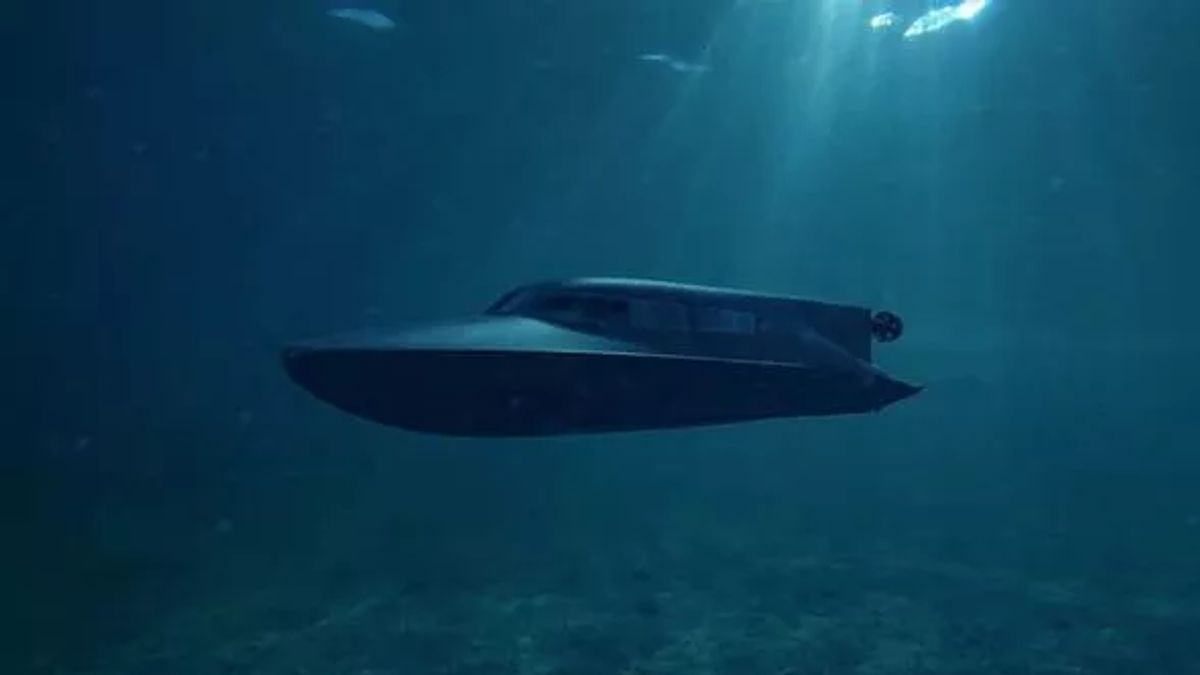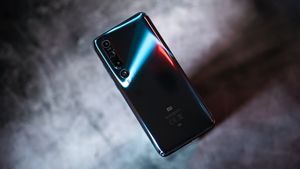JAKARTA – Inspired by the James Bond films and the ambitions of the company Global Britain, VICTA has begun testing a combination speedboat and submarine that can secretly send Special Forces to enemy shores. The trial has been carried out in stages since last week in England.
Portsmouth-based manufacturer SubSea Craft has now even received orders from a number of Ministries of Defense around the world. Orders also came from the British Ministry of Defence, which has been paying close attention to the new vehicle.
The 10 million pound vessel (IDR 197 billion) is described as the only “next-generation diver delivery system” in the world and is full of innovation. On the surface, the powerful diesel and water jet engines can reach a top speed of 40 knots and have an astonishing 250 nautical mile range.
But when approaching the target, Victa can descend underwater. With the push of a button, the ship sank, water filling its tanks and cabin, where eight SBS operators, including a pilot and copilot, already on breathing apparatus, were ready for action. The transition can be done in just two minutes.
However, its Global Britain credentials go beyond its military applications, with technological breakthroughs provided by some of the UK's most innovative companies.
Just seven years ago the company's founder, Graham Allen, started working in his warehouse with the idea that he had his first child after watching a James Bond film. A prototype was successfully built, but the catamaran was too heavy.

Now its latest incarnation sees a sleek monohull ship with an enclosed carbon fiber shell.
This transformation was achieved by "computer fluid dynamics" provided by BAR Technologies, the company founded by British yachting champion Sir Ben Ainslie, which leverages downsizing technology developed for racing in America's Cup.
The bespoke navigation system is provided by Yately-based Sonardyne.
At the heart of the Victa lies an aircraft-like fly-by-wire control system that provides dynamic stability in all conditions and allows the crew to focus more on their mission. The technology came from the British company SCISYS, which was later taken over by the Canadian multinational CGI.
The next-generation bespoke software suite offers its operators contact with bases and assets ranging from sonar to individual communication systems that allow pilots to relay order changes and check the status of their SBS counterparts.
“The idea was to create a hybrid between a long-range insertion vessel and a diver dispatch. Even though our main market is the defense industry, that doesn't mean we don't have interest elsewhere, from the offshore/onshore energy sector, scientific research, and even extreme sports”, said CEO Scott Verney.
SEE ALSO:
He added: "The defense here is undergoing an evolution in terms of procurement".
“Government support seems to be greater for businesses like us that talk to other countries and want to export our goods or they want to build under license. There is momentum and support now that the industry has never enjoyed before", said Verney.
Maritime UK CEO Ben Murray said: “It is this high-value innovation, right in Maritime, research, and science that will drive Global Britain forward through exports.
“Companies like Subsea Craft are combining automation with a more sustainable way of moving and, in doing this, growing what has been organically developed across the UK”, added Murray.
The English, Chinese, Japanese, Arabic, and French versions are automatically generated by the AI. So there may still be inaccuracies in translating, please always see Indonesian as our main language. (system supported by DigitalSiber.id)


















